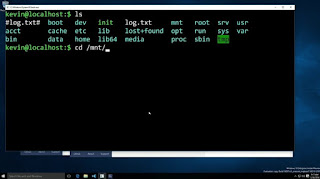Online privacy: erase your trail vs. leaving a false trail - "TechnoTron"
What is the best way to protect the information that we generate on the Internet?
Each bit time is again the debate, especially when a company has a breach of security, and passwords or information from hundreds of users appear in forums or news groups whose purpose is to sell data to the highest bidder.
Recently, the protection of online privacy has become to the fore by the controversial decision of the House of Representatives of the united States, that in the past month of march passed a law that will allow the telecommunications companies (or ISPS) to market with the information of the internet users.
What does this mean? That anyone, individual or company, can buy from the suppliers of u.s. Internet data of their customers without their consent. What data? Search history, downloaded apps, what devices they use to connect, for how long, etc

SOFTWARE, PRIVACY, INTERNET
Privacy, a sensitive issue
If you think about it. One thing is that since your computer access to certain content on the Internet and then delete the trace by emptying the search history and browsing, clearing cookies, etc, But your Internet provider has that information even if you're browsing with safe mode or incognito mode.
Before this law, in the united States Internet service providers could only access the information of their clients with your prior approval. Now you don't need.
This law sets a precedent anything but reassuring to the user and gives to think if it will spread to other countries
If you live outside the united States you're safe. Your provider, in principle, does not share your information generated as a client. And, on the other hand, this law does not affect services with headquarters in the US such as Facebook, Google or Twitter.
Be that as it may, this act sets a precedent for anything but reassuring to the user and gives to think if it will spread to other countries by imitation. Have access to the data of Internet users is very appealing, because it allows to fine tune the aim with the advertising campaigns and with the launch of new products.
In the wake of this news comes a big question: how can we protect our privacy online? How to stop our ISP or telecommunications provider keep a record of our habits and uses of the internet and then sell?
Do silence or noise?
There are two ways of approaching the protection of privacy online. Hide our habits, keeping us in silence or on the contrary, leave false trails of our navigation, making all the noise possible so that the resulting data are useless.
Normally, when we talk about privacy we provide solutions focused to not show our data. For example, we recommend the use of the HTTPS protocol because it encrypts the exchange of information between our browser and the page that we access.

Another common solution is to recommend the use of VPN. Browsers such as Opera integrate this function and there are so many VPN solutions, free and paid, to surf anonymously from our computer or from mobile devices.
In connection with the VPN technology, it is also usually recommend the use of browsers with emphasis on privacy. The most popular is Tor but there are other options to consider, such as Epic, Privacy, Comodo Dragon or Avira Scout.
All of these measures, of course, have to be accompanied by common sense, especially when we talk about social networks, where if we want to protect our privacy we should share as little as possible.
Make noise to confuse
As I said before, the silence tends to be the main solution given by the security experts when the need arises to protect our privacy online. But on the other hand, there is an alternative solution that also makes sense: to leave a false trail.
When it comes to clear the contents of a hard disk, we reformat that drive once. But when we use more advanced systems like professional tools, these tend to rewrite data on the disk. Is more, the Department of Energy of the united States has, as standard, to rewrite three times to delete data in units of storage-magnetic, as is the case.
Following the pattern of the erasing of hard drives, why not saturate it with false instead of prevent them from spreading?
With this idea comes the Internet Noise, it is a site that, after pressing a button, it takes control of your browser to open new tabs with content random.
The purpose of the Internet Noise is to protest the commercialization of the navigation data of internet users americans.

Their manager, Dan Schultz, cautions that his tool does not we will bring more security to our online privacy. In any case despistará to advertisers, to alter our habit of navigation.
Is more, the own Dan Schultz recommended to protect our online privacy, with HTTPS Everywhere, Privacy Badger, Tor and/or VPN.
Basically you have to press on, Make some noise to activate the Internet Noise, let it do its work while you do not need to use your computer, and when you need to access it again, you can stop the tool with the button Stop the noise.
The usefulness or not of the Internet Noise will depend on the sophistication of the analysis tools of the habits of the companies interested in trends and personal preferences. Do you visit random pages I despiste or the algorithms that are used are able to distinguish between a page open by accident and a logical navigation?
SOFTWARE, PRIVACY, INTERNET

Comments
Post a Comment